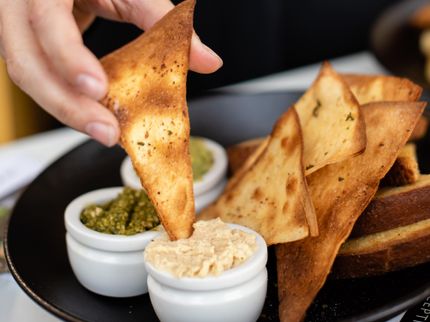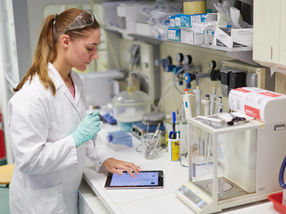PepsiCo sees growth from "guilt-free" items like Baked Lay's
What do Baked Lay's potato chips, Simply Tostitos chips and Diet Mountain Dew have in common? They're all "guilt-free," according to how PepsiCo categorizes them.
In reporting higher global sales Wednesday, PepsiCo CEO Indra Nooyi reiterated in a call with Wall Street analysts that 45 percent of the company's revenue now comes from such "guilt-free" products. The figure underscores how food makers are trying to position themselves to keep pace with the shift toward the wholesome options they say people want.
There's debate about what's consider healthful among consumers. And ideas about it can change. Last year, the Food and Drug Administration said it is re-evaluating its guidelines for when companies can use the term "healthy" on packaging to reflect the latest science. The maker of Kind fruit and nut bars, which had been warned about its use of the term, had said the agency's definition is outdated.
PepsiCo Inc., the maker of Doritos, Tropicana and Gatorade, considers in the guilt-free category products with "positive" ingredients such as grains, fruits and vegetables. That would include its Naked beverages, a few varieties of which have more than 400 calories and 50 grams of sugar from fruits per bottle, and Quaker products, such as the "breakfast cookie" which has 180 calories, 6 grams of fat and 14 grams of sugar.
Drinks with less than 70 calories per 12-ounce serving are also part of that same category, as are snacks with less saturated fat or sodium than their regular counterparts.
Though PepsiCo Inc. doesn't stamp its packages with the "guilt-free" label it uses with Wall Street, the idea comes through in product names like "simply" and "baked" and in how they're generally marketed.
Tim Caulfield, a professor at the University of Alberta's School of Public Health, said such products signal progress because they show that companies are feeling pressured to present healthier options. But Caulfield noted that the "health halo" of such foods can prompt people to rationalize habits.
"You've got your low-calorie soda and your guilt-free snack, and you can eat more of it," Caulfield said.
David Wiss, a dietitian in Los Angeles, said food companies can tap into people's feelings around food by offering options with less of this or that ingredient - while still offering regular versions for when they may feel comfortable about indulging.
"Food companies are smart enough to know how to take advantage of it," Wiss said. "They're offering the entire spectrum of emotions, which is what a good business would do."
Donald Hensrud, director of the Mayo Clinic Healthy Living program, noted that food companies help determine what people eat, and that their efforts to offer better options is progress.
"From the standpoint that they are creating healthier products, that's a good thing," he said.
It's not just PepsiCo. Food makers across the board are saying they want to offer healthier options as they face criticism from public health advocates and see changing trends among consumers. But delivering on such promises can be tough and take time.
In 2014, for instance, Coke, Pepsi and Dr Pepper pledged at the Clinton Global Initiative to slash the number of calories Americans get from drinks by 20 percent over a decade. In the first year, the number of calories people drink dipped just 0.2 percent - a smaller decline than in previous years before the pledge.
Still, PepsiCo noted Wednesday that it now gets just 12 percent of its revenue from Pepsi sodas, including diet varieties (which would be considered "guilt-free").
For the three months ended Dec. 31, PepsiCo's global sales volume rose 3 percent for snacks and 1 percent for its beverages. Its profit of $1.4 billion, or $1.20 per share when excluding one-time items, was better than analysts expected. (dpa)


























































